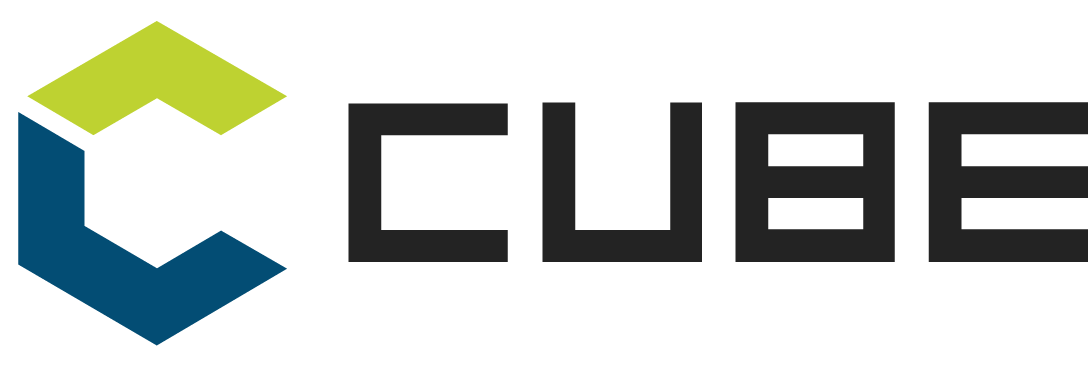
15 Jun “Market researchers should themselves buy NFT’s”
The Metaverse is here to stay. After the initial internet period with various search engines resulting in a near-monopoly for Google, and the subsequent wave of community platforms and social media, Dado Van Peteghem says we are now about to embark on a third internet revolution, courtesy of virtual reality. At CUBE’s latest General Assembly, the innovation expert explained how market research agencies may play a part in this groundbreaking web 3.0 that will reshape the world of brands, businesses and market researchers.

First let’s go back to the beginning. If the metaverse does indeed turn out to be the overwhelming tsunami that totally shakes up internet rules and habits, Van Peteghem considers it important to keep in mind how things have evolved up to this point in time.
From web 1.0 to 3.0
“I have worked as a market researcher myself in the past, for InSites consulting. While until then market research agencies used questionnaires and focus groups, they were among the very first in Europe to start using web-questionnaires and online focus groups. They surfed the waves of web 1.0, which was the beginning of the internet, when Google became the leading search engine. Web 1.0 facilitated read-only services: market research agencies could send online questionnaires via the internet.
The second internet wave delivered the read-write web. It gave businesses, brands and also, certainly, market research agencies, the opportunity to do research based on the information people shared on community platforms and social media. To market research agencies, this was like a seismic shift. The rise of sociale media and communities gave them the opportunity to gather data based on real time conversation.
At present we have reached the start of web 3.0: read, write, own. The underlying technology of this new chapter in the story of the web is the blockchain, which allows people to prove they are the owner of any given goods or services. Onto this blockchain, virtual worlds are being built at a rapid pace. These virtual worlds, also called immersive experiences, are the metaverse. It is important to remember that ‘metaverse’ is the collective term: it does not designate just the one place, but a range of platforms in which big tech players such as Facebook and Microsoft are also actively involved.
Examples? Facebook owns Oculus, the VR-headset that allows us to visit their virtual world. It is also busily building its ‘Horizon worlds’. Microsoft is trying to create a B2B variant that will allow us to have meetings in virtual conference rooms, where we will be present in the shape of avatars, instead of participating in online Zoom or Teams meetings. A number of up-and-coming metaverses such as Sandbox and Decentraland are focusing on gaming and metaverses like OnCyber and Spatial on digital art.
Lately, developments in the metaverse have gained extraordinary momentum, as blockchain technology has also been making big strides. We have seen the rise of crypto currencies and lately the advent of NFT’s (non fungible tokens), which allow people to buy a digital asset, an image for instance, but also – mainly – to prove beyond any doubt that they are the rightful owner of this digital asset, which is impossible to prove by any other means.
We are, in other words, heading for a total immersive experience. People will spend increasing amounts of time in the online virtual worlds, where they will also spend money to own things. Even today, youngsters are spending money on items that exist exclusively in online games. That’s where the many fashion brands pioneering in the metaverse world see potential: in convincing clients to choose them in the virtual world also. Brands like Gucci, Louis Vuitton, Nike and Adidas are moving forward in the metaverse right now, experimenting with new ways of connecting with their target audience.
Clearly, major brands are increasingly focusing on the metaverse and actively figuring out what their role may be in this other world. They may have shops in the metaverse where we can go to buy their brands. E-commerce also promises to be a nicer experience in a virtual reality.
For, about and in the metaverse
Like these large companies, market research agencies should definitely ensure that they do not miss this boat. I see three ways in which market research can play a part in the metaverse. The first is ‘for’: acting for brands and companies that seek to find out what type of metaverse is relevant to their business and want to reflect on ways and means to catch the attention of the metaverse-generation. Market research agencies can assist brands with research into their popularity with metaverse audiences and to find ways of boosting it.
The second way is ‘about’: gathering and using information about the metaverse. For Belgium, few data are available regarding the number of people using the metaverse, owning an NFT or the percentage of Belgians who have crypto-coins in their portfolios. Market research agencies can contribute to the the identification of data regarding use and adoption of all aspects of web 3.0 and the metaverse. This is a broad field, as web 3.0 is a comprehensive subject that includes the metaverse(s), cryptocurrencies, NFT’s and decentralised finance, by which people do their banking via het internet and blockchain and no longer use a traditional bank.
Last but not least ‘in’: market research in the metaverse. Market research today often still is tedious, with people having to fill out questionnaires. Using such an old-fashioned surveying method entails the risk of not attracting the right participants or in any case not those belonging to the desired target group. In web 3.0, market research agencies will be in a position to ponder whether, for instance, to create virtual focus group buildings that allow them to implement much more contemporary research methods.
The time is now
The market for the metaverse is starting to take shape ever faster. Sceptics will, of course, keep doubting whether and when it will happen. But I see three major signals coming from three major target groups: investors starting up large funds involving web 3.0, developers crossing over from web 2.0 to web 3.0 companies, and finally: youngsters. Ask a random group of twelve-year-olds whether the prefer real money or Fortnite currency. The answer may surprise you.
Simply put: market research agencies would better not procrastinate. The time is now: companies are on the lookout for advice, input and data in order to implement their strategies. I’m convinced that market research agencies are in the driver’s seat to turn what is currently seen as a hype or trend into tangible reality, based on local market data.
Do your own research
One last recommendation: do your own research. One of the better ways of grasping a method is to to apply it. The one thing market researchers are good at is doing the research, but in this case they also have to try out their own research-based recommendations. I think the best way to get a good feel for what a metaverse can be is to learn everything there is to know about it and test it. So let market researchers buy themselves an NFT or play Roblox with their son or daughter.
There is no need to worry of lose heart thinking that w’re late to the game. We’re still at the bottom left end of the curve. But I do hope this time market researchers will shift to a higher gear more swiftly than at the time of the last transformation. I hope we have noted and learned that technology is no passing fad and that web 1.0 and web 2.0 have demonstrated how phases like these change the way we do market research in fundamental ways. We should adopt an experimental mindset and dare to leap into the future, with and into the metaverse.”
